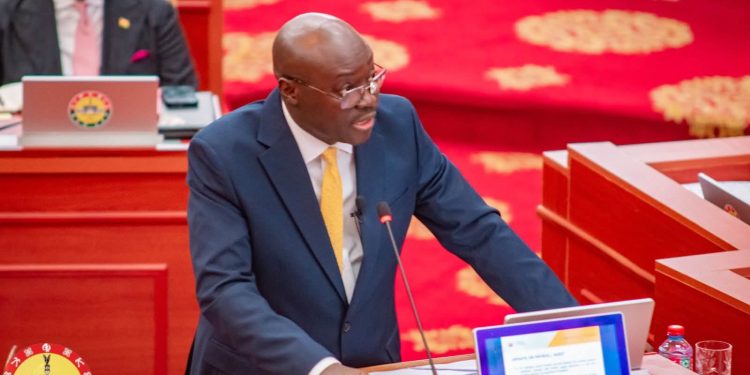The Minister of Finance, Dr Cassiel Ato Forson, has announced that the COVID-19 Health Recovery Levy — commonly called the “COVID-19 levy” has been abolished.
The abolishment is part of a sweeping tax reform under the Value Added Tax Act.
The levy had been introduced in March 2021 under the COVID‑19 Health Recovery Levy Act, 2021 (Act 1068), at a rate of 1% on supplies of goods/services and imports, to raise revenue to support Ghana’s COVID-19 response.
The levy was originally intended as a temporary measure to help finance pandemic-related health expenditures. The government argues that the emergency has passed and the fiscal architecture must now be normalised.
The reform comes under a broader review of Ghana’s VAT regime, aiming to simplify the tax structure, remove the cascading effects of multiple levies, and reduce compliance burdens on businesses and consumers.
The move has backing from the International Monetary Fund (IMF) and stakeholders, who see value in consolidating levies into one unified system and improving tax efficiency.
Presenting the 2026 budget statement and economic policy of the government, Ato Forson said that COVID-19 has been abolished.
The abolition of the levy is likely to have several effects:
For consumers and businesses, the removal of the 1% levy may lighten the tax burden for end-users and businesses, potentially reducing the costs of goods and services, and the simplification of the tax framework may reduce administrative costs for firms, especially smaller ones in the informal sector.
For government revenue and fiscal policy, the levy had become a meaningful part of Ghana’s revenue base. A study estimated that eliminating the COVID levy (together with the E-levy) could cost over GHS 22 billion in revenue between 2025-27.
Therefore, the government will need to identify alternative revenue sources or reforms (such as reducing exemptions, improving tax compliance, and streamlining VAT) to maintain fiscal balance.











